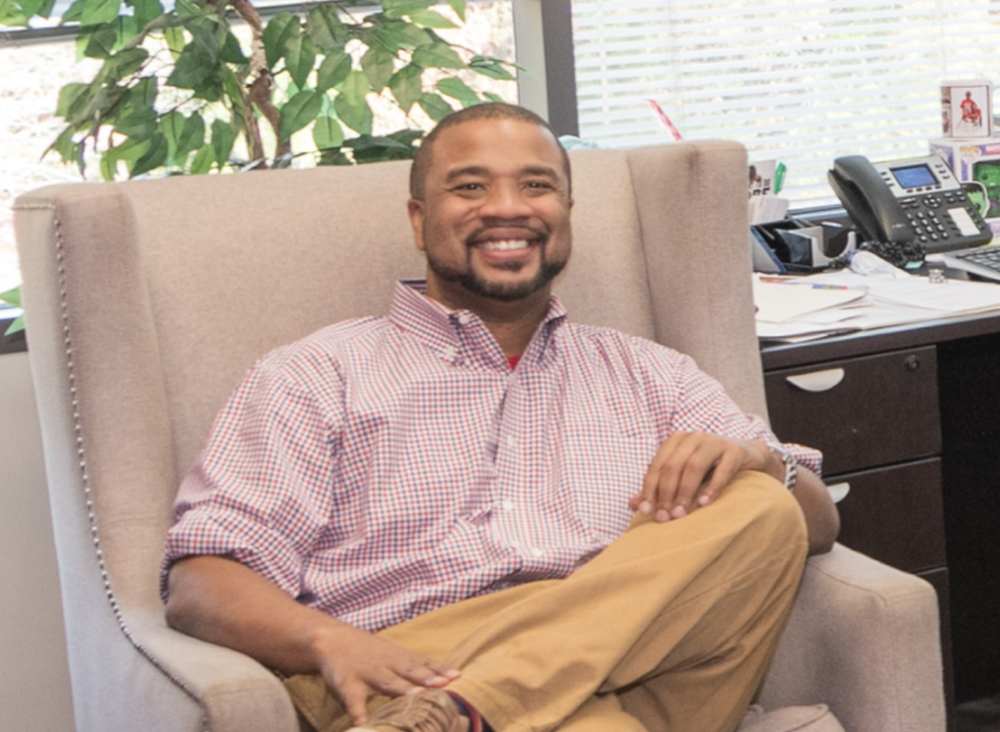
Recently, there has been a lot of attention around the mental health of our teens and younger children, especially post-COVID. The more we scroll through social media and watch the news, the more we read and hear about the mental health crisis; and the more we read and hear about the mental health crisis, the more scared and frightened we become for our kids. So we seek information on how to help them, how to talk to them, and then, it seems, they too become more fearful and more anxious.
Many see this time as an unprecedented time of unprecedented fear and anxiety. But is it really?
Anxiety is anxiety, whether it’s borne from the recent pandemic or a million other things–big or small–that evoke a feeling of anxiety. Anxiety is a normal response to abnormal situations. And sometimes the response is the same, regardless of the cause of the anxiety.
Making natural anxiety seem different or bigger makes it harder to address.
Isn’t the transition period from grammar school to middle school/junior high or the transition to high school or college usually difficult or anxiety-inducing in terms of socialization? How much different is the feeling of anxiety in children because of the years missed in face-to-face schooling? Being fully remote during a pivotal educational and social time in life was, in fact, very difficult, but these transitions have always been difficult. So what if we simply approached the problem as “socializing is hard” rather than “socializing after a pandemic is hard”? Rather than empathizing with the extraordinary social circumstances our young people are dealing with, consider demystifying it for them, simply pointing out that socializing throughout your childhood and teenage years is something that everyone deals with and encouraging socializing in the same way you would have if they had not been through something big. It isn’t a scary, foreign thing that no one but their generation has had to go through.
Looking at the current situation and teaching children to be present in the here and now, rather than focusing on the cause of the situation may make it a bit easier to address. For example, if a child has trouble with “social anxiety,” instead of approaching the situation through the lens of “it is hard to make friends because of skills lost or never gained during the pandemic,” consider approaching it with “sometimes it’s just hard to make friends.”
As parents and people living everyday life, we can empathize with that difficulty. We all have stories to share about when we felt anxiety about making friends and fitting in.
It’s the same with social media. I see all the reports about the harm social media is having on our kids because of the constant comparisons they make to unreal images they see. Yet I remember my sister doing the same thing with Vogue, Elle, and a myriad of other teen magazines. Or myself, being a chubby kid, and seeing bodybuilder physiques in the comics and magazines I read. Is it exactly the same? No. But it gives us the context to be able to relate to a situation our kids might say we can’t. And the response to their anxiety can simply be, “don’t look at it; take a break.”
In terms of growing up, there is nothing new in the box of challenges and changes. The packaging may change, but once you open the shiny (or scary) new box, the concepts in it are pretty consistent. Looking in the box and unpacking it as standard, normal, and maybe anxiety-provoking stuff, takes away anxiety’s greatest power over our children–fear of the unknown. Let them know that fear and anxiety are normal and they are going to be okay.
Of course, if your child is struggling from anxiety that keeps them from attending to the tasks of daily living, such as going to school and/or work and engaging in social activities with friends and family, intervention may be necessary. Please reach out to a medical professional for assistance.
BIO BOX
Dr. Theo believes that removing the stigma of mental illness begins with the realization that conditions affecting the brain are no different than conditions affecting any other organ system. His philosophy is to ensure that his patients feel as comfortable coming to a psychiatrist as they do any other medical specialist and that patients should not feel shame in taking care of a mental health condition. Dr. Theo is board certified in both general and child and adolescent psychiatry. He is the founder of Beautiful Minds Mental Health Services in Georgia. In practivce for more than 10 years, Dr. Theo and his team joined Foresight in 2024. Foresight Mental Health offers psychiatry and therapy both in-person (in select locations) and remote in seven states. Learn more at www.foresightmentalhealth.com.